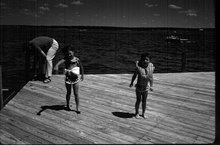
Palo Duro, 1947
I argue that the quest for the general laws of love and emotion frame, in rational terms, the desire to write.
--Christie McDonald, The Proustian Fabric: Associations of Memory
How do we seize the past? How do we seize the foreign past? We read, we learn, we ask, we remember, we humble; and then a casual detail shifts everything…The past is a distant, receding coastline, and we are all in the same boat. Along the stern rail there is a line of telescopes; each brings the shore into focus at a given distance. If the boat is becalmed, one of the telescopes will be in continuous use; it will seem to tell the whole, the unchanging truth. But this is an illusion; and as the boat sets off again, we return to our normal activity; scurrying from one telescope to another, seeing the sharpness fade in one, waiting for the blur to clear in another. And when the blur does clear, we imagine that we have made it do so all by ourselves.
--Julian Barnes, Flaubert’s Parrot
The collector of the past is often satisfied with a limited inheritance of discrete, sublime moments. I distinguished this in the girl. She was finely attuned to such moments, and waited with patient apprehension for them, as if she were watching for the fleeting glimpses of tiny birds, a flash of wing, a sudden rustling of high branches. This is a trait I have noticed in many people who grew up in and around the Texas Panhandle, where the endless wash of prairie grass might suddenly, but almost imperceptibly rupture, the earth tearing away into a reddish gash of canyon. These topographical incisions vibrate with life--hawks and coyotes, Indian grass and meadowlarks and dove, the tracks of mule deer disappearing somewhere below in a glistening sliver of water.
She was accustomed to driving mile by anonymous flat mile along the berm of the railroad, itself just an unnatural rise of earth which over time had collected sage and yucca, and the seeds of strange flowers native to other lands dispersed by migratory birds stopping along the snow break. It was just enough beauty to catch in your throat if you were sensitive to it, nothing more, but it sustained, like the most pitiful morsel of bread doled out to the poor.
Sometimes I wonder if she had so disciplined her aesthetics as too be finally unresponsive to anything more than the de minimus, if this was why she loved, cautiously and apprehensively, the old professor, because he was a handful of unremarkable seeds dashed at her feet amidst the deafening roar of all that was worthy of marvel in the city, if the landscape of her imagination perceived all the magnificence before it, necessarily, as a desert, a wilderness against which he bloomed hesitantly, in the very manner she beheld to be unutterably beautiful.



